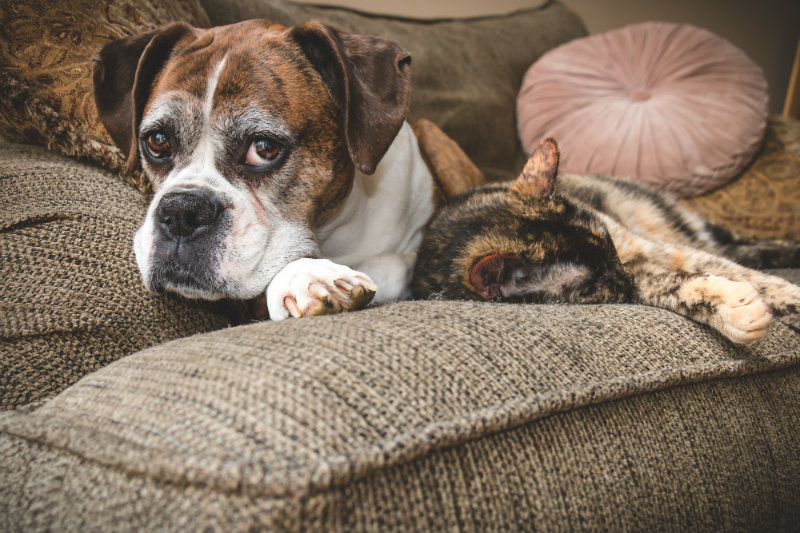October and November are senior focus months at Cumberland Veterinary Clinic! As our pets age, it is important to make modifications to their daily life to allow them to enjoy their golden years.
- Seniors pet need stimulation too!
As our pets age, their desire to play may decrease, but it is still important to provide senior pets with environmental enrichment. Senior dogs may enjoy a more relaxed play session with softer toys than when they were younger. Senior cats also appreciate play time. You may need to shorten play sessions and be aware of any mobility issues or discomfort that your cat may have when initiating play activities.
- Adapt their surroundings.
Older pets often suffer from joint pain and discomfort. Be aware of any activities that your pet may be struggling with as they age. Could your dog benefit from a ramp to help them get in and out of the vehicle? Do they now need or prefer a lower piece of furniture to sleep on which is easier for them to access? Could they benefit from carpeting on slippery floors? Is your cats’ favourite cat tree located in front of a cold, drafty window which is making mobility more challenging for them?
- Think comfort.
Regularly evaluate your pets bedding and sleeping areas. There are a lot of great options for specialized beds for older pets such as orthopedic foam or even heated pet beds. When using a heated bed be sure to purchase a bed specifically for pets. Do not put a heated bed in a confined space that your pet cannot get away from if they become too hot.
- Make life easier for them.
This tip is more specifically aimed at our feline companions. Senior cats can have different preferences and needs for their litterbox area. As they age, it can become challenging for them to enter their litter box and get into a comfortable posture to urinate and defecate. A larger litter box with high sides and a low point of entry are preferred by most senior cats. Consider placing a litterbox on the main floor of your home to avoid stairs or installing a night light near your cats’ litterbox. As cats age their ability to see in the dark can decrease.
- Ease their pain.
Limping, struggling to do stairs or difficulty rising are all signs of pain. There are several supplements and medications for both cats and dogs. Always consult with your veterinarian before starting any supplements and never give human medications (Advil, Tylenol etc.) unless directed by your veterinarian.
- Keep an eye on your pets’ habits.
Changes in your pets’ normal routine can also be signs of pain. Is your cat urinating or defecating inappropriately because they struggle with using the stairs to access their litter box? Is your dog no longer coming upstairs to greet or sleep with you when they have been doing so all of their lives? Observing your pets’ behaviours on a regular basis can give us a lot of clues about how our pets are feeling.
- Be vigilant.
It is always important to be vigilant when children and pets are together but especially with senior pets. Their joints and backs are often more delicate, so they are more sensitive and less patient. Be sure to provide your pet with a safe designated area where they can get away if they have had too much. Teach children to be gentle when handling your senior pet and to recognize the signs when they have had enough!
Written by Janet Hofos




